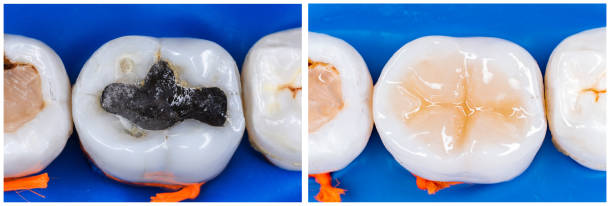Question and Answer

How successful are root canals?
Root Canals: How Effective Are They? Root canal therapy is quite effective, with a 95% success rate. A lot of root canal treated teeth may last a lifetime. Furthermore, because the last phase of the root canal treatment is the placement of a restoration such as a crown or filling, bystanders will not notice that a root canal was performed.
If you are unfamiliar with the treatment, the prospect of a root canal may make you nervous. Endodontic procedures, like as root canals, are often misunderstood to cause pain and/or sickness and should be avoided at all costs. The inverse is true. It is possible to avoid the discomfort, trouble, and cost of skipping endodontic treatment in favor of tooth extraction or a wait-and-see strategy. The longer you put off treatment, the less likely you are to save your tooth. Take the time to study the material on our website to learn what endodontists do to save teeth in the shortest amount of time and with the least amount of suffering. Then, talk to your dentist or endodontist about any lingering concerns or queries.
The effectiveness of root canal therapy has recently been debated. Until recently, a dentist had to rely on one-dimensional x-rays to determine whether or not a root canal was radiographically effective. Using a cone beam x-ray, we can now see the jaw in three dimensions. Many root canals have become infected as a result of the introduction of this new technique. Long-term success rates for multirooted teeth are as low as 25%, according to some dentists. Before undergoing this treatment, consider the 75% failure rate.
Root canal therapy typically saves the tooth and eliminates the infection. Nine out of every ten root-treated teeth live for 8 to 10 years. After root canal treatment, it is critical to fit a crown on the tooth to improve dental survival chances. Your fixed tooth should last for a long time if you maintain your teeth clean.
Your tooth’s survival is determined by a number of variables, including:
How much of the natural tooth remains
How well do you keep your teeth clean
The biting forces on the tooth
However, if an infection recurs, the root canal procedure can be redone. If therapy to a high quality has previously been performed and the infection persists, a minor procedure to remove the root tip (an apicoectomy) may be performed to treat the infection.

